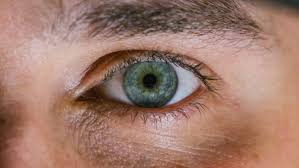Recent studies conducted by The American Academy of Ophthalmology advises reducing screen time and offer tips to avoid dry, strained eyes. Experts also found that work from home and increased screen time is ruining the vision. Since the announcement of the COVID-19 lockdown, people are confined to their houses. This increase in interaction with the digital system has raised complaints of eye strain, dry or itchy eyes, headache, blurred vision, and physical and mental fatigue. Also, the research found that children aged between 5 and 15 years are spending twice the amount of time in front of screens of mobile phones and computers that they did earlier.
Studies have suggested that the blue light from screens can damage retinal cells, leading to problems like age-related macular degeneration. Experts do not consider screens as a source of permanent vision damage, even if extended use can cause eye irritation. The most important thing to consider when it comes to scenes is if and how much they may damage your eyes in the long term. Even though there is not yet a clear answer and so more research needs to be done, the accepted view is that the blue light is not a major cause of long-term vision issues, though excessive use should be avoided.
Most of the people use different supplements available on the market and they may have adverse side effects on your body. ReVision supplement is a blend of natural ingredients that helps to improve your eye health. If you are interested to know more about ReVision supplement, then go through this detailed Revision review by PHDSC.
Tips by The American Academy of Ophthalmology to desk workers
The average working hours of desk workers are 1,700 hours per year in front of a computer screen. The studies conducted by them found that focusing the eyes on computer screens or other digital displays has been shown to reduce a person’s blink rate by a third to a half. This tends to dry out the eyes. They also published that blue light filters or expensive computer glasses are no more effective at reducing the symptoms of digital eye strain. They suggested some tips. They are:
-
Keep the monitor or screen at a distance of your arm’s length or about 25 inches away.
-
Use a matte screen filter
-
Adjust the room lighting and increase the contrast and brightness of your screen to reduce eye strain.
-
Follow the 20-20-20 rule and blink your eyes frequently. The 20-20-20 rule suggests taking a break every 20 minutes by looking at an object 20 feet away for 20 seconds.
-
Lubricate your eyes with artificial tears when they feel dry or use a desktop humidifier.
-
Do not use mobile phones, laptops, or any other devices before going to bed. Limit the use of these devices one to two hours before your bedtime.
Dianna L. Seldomridge, M.D, clinical spokesperson for the American Academy of Ophthalmology said that “Eyestrain can be frustrating, but it usually isn’t serious and goes away once you rest your eyes or take other steps to reduce your eye discomfort. If these tips don’t work for you, you may have an underlying eye problem, such as eye muscle imbalance or uncorrected vision, which can cause or worsen computer eye strain”.
Experts and ophthalmologists of the country also suggest conducting a child’s first comprehensive eye exam between 6 months and 12 months, at age three and before entering the school at age five or six. Health care professionals are also encouraging everyone, not only children, to take extra precautions when working or learning from home and recommend checkups to ensure your eyes stay healthy and clear.
Media Contact
Company Name: Webertise Solutions LLP
Contact Person: Stephen George
Email: Send Email
Phone: 9633533554
Address:114/3 2nd Floor, Kasi Arcade Thiyagaraya Nagar
City: Chennai
State: Tamil Nadu
Country: India
Website: webertise.com

